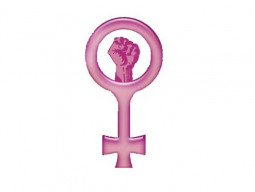
KARACHI: Start-up is a temporary organisation created to focus on driving an idea into a scalable and sustainable business model.
It is important to make sure that the idea is not a ‘copy-cat’ or a clone of an existing idea, but an innovative or creative concept that creates value and stands on its own feet. Clones shrink the pie, provide low value and have slow growth rates, while innovation-driven ideas are high risk, but can exponentially increase the pie, experience high-value-addition and faster growth.
Start-ups are critical for any economy as they act as fertilisers for employment and have many socio-economic benefits. They help create a practical backdrop for budding entrepreneurs and in driving interest in entrepreneurship as a viable career option. They also serve as job creators and a much needed source of employment.
To check out the impact on employment, lets look at two globally famous start-ups, Apple and Google and an established company like P&G. Over a 10-year period, using 2004 as a base, P&G work-force has pretty much remained flat, whereas
 SOURCE: WORLD BANK
SOURCE: WORLD BANKApple has grown at an impressive 24% per year, and Google at a mind-boggling 53% per year; Google employee base increased 70 times in 10 years. P&G today is 177 years old, while Apple and Google have been operating for a mere 39 and 27 years respectively; a clear indication of the positive role new start-ups play in providing jobs.
On the other hand, when we look at the value creation or the impact these new start-up companies have on the US economy where they all operate in, is simply astonishing. Apple today is worth 3 times what P&G is worth, and is 139 years younger. Same situation with Google and Microsoft versus 100+ year-old companies like Coke and IBM.
A classic case of exponential value-creation is of Instagram, which in a mere 18 months of its creation was bought by Facebook for a whopping $1 billion, while only having 13 employees. This kind of exponential growth was just not possible in the 20th century but is happening across the globe.
Pakistan’s case
Where does Pakistan stand on ‘start-ups’? One key data source is the World Bank Group’s report on “Doing Business”. Starting in 2014, a new measure to track entrepreneurial activity has been included. If you look at the bar chart for “New Business Density”, which is defined as the number of newly registered corporations per 1,000 working-age people (those ages 15–64), Pakistan is last at the bottom of all South Asian countries, worse than Bangladesh, Bhutan and even Afghanistan.
Entrepreneurial activity is a pillar of economic growth, and it is no surprise that there is a clear correlation between the aforementioned start-up data with the continued poor economic growth of Pakistan economy (see table). The situation is further compounded by Pakistan’s having the highest population growth rate amongst all South Asian nations.
Entrepreneurial activity is a pillar of economic growth. The data from US and many other countries confirms that Pakistan needs to urgently fix its entrepreneurial ecosystem.
If one looks at the survey by World Bank Group on Pakistan’s “Ease of Doing Business” some glaring facts on why people don’t want to start a business or become an entrepreneur come to light. The ranking in this survey of 189 economies clearly highlights the plight of Pakistan business people and community.
Pakistan’s government must set goals for each of these “Ease of Doing Business” indicators, share them publicly and create strong accountably by naming a minister level person, with credibility and authority, whose sole job will be to fix this issue urgently. Else Pakistan will be left behind, as we can see, while other countries continue to progress at supersonic speed in this new knowledge economy era.
THE WRITER IS ASSOCIATED WITH THE CORPORATE SECTOR AND A SUPPORTER OF MANY SOCIAL ENTERPRISES AND FOUNDATIONS
Employment | 2004 | 2014 | Annual Gwth% |
Apple | 11,700 | 98,000 | 24% |
800 | 55,000 | 53% | |
P&G | 110,000 | 118,000 | 1% |
Time Period | 1987-1995 | 1996-2006 | 2007-2013 |
GDP Growth (%) | 5.2 | 4.3 | 3.0 |
Published in The Express Tribune, April 20th, 2015.
Like Business on Facebook, follow @TribuneBiz on Twitter to stay informed and join in the conversation.




















































COMMENTS (14)
Comments are moderated and generally will be posted if they are on-topic and not abusive.
For more information, please see our Comments FAQ